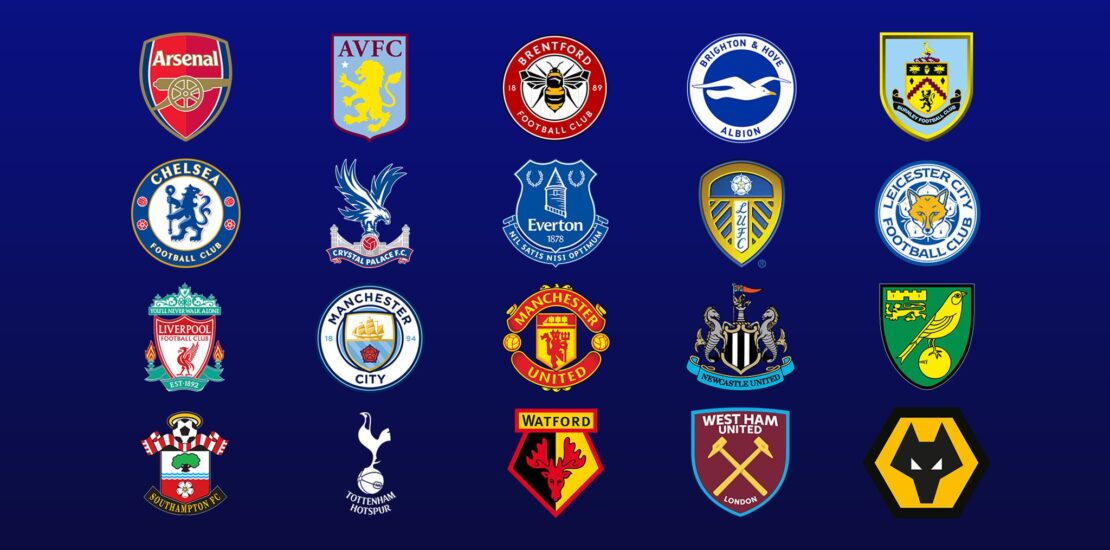- 04/03/2025
- Posted by: summerdown
- Categoria: News

The Premier League has long been a melting pot of managerial philosophies, with each coach bringing distinct strategies and ideologies to their respective clubs. As of March 2025, this diversity continues to enrich the league, offering fans a captivating blend of tactical approaches and leadership styles. This article delves into the prevailing managerial philosophies in the Premier League, examining how they influence team performances and the overall competitiveness of the league.
Pep Guardiola: The Architect of Positional Play
Pep Guardiola’s tenure at Manchester City has been marked by his unwavering commitment to “Juego de Posición” or positional play. This philosophy emphasizes ball control, spatial awareness, and fluid movement, allowing players to interchange positions seamlessly. Guardiola’s approach requires high footballing intelligence and technical proficiency from his squad, leading to a brand of football that is both aesthetically pleasing and tactically superior. His influence extends beyond Manchester City; for instance, Frank Lampard, the current manager of Coventry City, credits a 45-minute discussion with Guardiola as instrumental in shaping his own coaching style. Lampard’s Coventry has since transformed into a formidable side, climbing from near relegation to a commendable fifth place in the Championship.
Jürgen Klopp: The Proponent of Gegenpressing
At Liverpool, Jürgen Klopp has instilled the philosophy of “Gegenpressing,” a high-octane style that focuses on immediate pressure after losing possession. This approach not only disrupts opponents’ counter-attacks but also creates quick scoring opportunities. Klopp’s emphasis on intense pressing, rapid transitions, and collective unity has yielded significant success, including Premier League and UEFA Champions League titles. His charismatic leadership fosters a strong bond among players, cultivating a resilient and relentless team ethos.
Graham Potter: The Adaptive Strategist
Graham Potter’s tenure at West Ham United showcases a managerial philosophy centered on adaptability and tactical flexibility. Unlike managers who adhere strictly to a single system, Potter tailors his tactics to exploit opponents’ weaknesses. For example, in a recent match against Arsenal, he employed a defensive 5-3-2 formation to neutralize their attacking threats, resulting in a 1-0 victory. In contrast, against Aston Villa, he adopted a more aggressive approach, leveraging his players’ strengths to dominate possession and create scoring opportunities. Potter’s ability to adjust his strategies based on the opposition sets him apart in an era where many managers maintain rigid game models.
Eddie Howe: The Advocate of Attacking Possession
Eddie Howe, currently at Newcastle United, is renowned for his attacking, possession-based philosophy. Drawing inspiration from managerial legends like Brian Clough and Arsène Wenger, Howe encourages creative freedom among his players while maintaining structured build-up play. This approach not only entertains fans but also promotes player development, as individuals are given the liberty to express themselves on the pitch within a cohesive tactical framework.
Mikel Arteta: The Disciplinarian with a Vision
Mikel Arteta’s managerial philosophy at Arsenal combines tactical discipline with a clear long-term vision. Emphasizing structured defensive organization and controlled possession, Arteta seeks to restore Arsenal’s identity as a dominant force in English football. His meticulous approach to game preparation and focus on nurturing young talent align with the club’s tradition of developing future stars. Arteta’s philosophy reflects a blend of his experiences under mentors like Arsène Wenger and Pep Guardiola, aiming to create a team that balances defensive solidity with attacking flair.
Erik ten Hag: The Total Football Enthusiast
At Manchester United, Erik ten Hag has introduced principles reminiscent of “Total Football,” a philosophy rooted in Dutch footballing tradition. This approach emphasizes versatility, with players expected to adapt to multiple roles on the pitch. Ten Hag’s system relies on fluid positional interchanges, high pressing, and maintaining possession to control the tempo of matches. His philosophy requires players with high tactical intelligence and technical skills, aiming to create a cohesive unit capable of both defensive resilience and attacking creativity.
Impact of Managerial Philosophies on Team Performance
The diverse managerial philosophies in the Premier League significantly influence team performances and the league’s overall competitiveness:
-
Tactical Diversity: The presence of various managerial philosophies leads to a rich tapestry of playing styles, making each match-up unique and tactically intriguing.
-
Player Development: Managers like Eddie Howe and Mikel Arteta, who focus on nurturing talent within their tactical frameworks, contribute to the development of players who are both technically proficient and tactically versatile.
-
Fan Engagement: Distinct playing styles and managerial approaches enhance fan engagement, as supporters appreciate the strategic nuances that influence match outcomes.
Challenges and Adaptations
While each managerial philosophy offers a pathway to success, managers must adapt to various challenges:
-
Squad Adaptation: Implementing a specific philosophy requires players who fit the desired system, necessitating strategic recruitment and, at times, significant squad overhauls.
-
Opposition Analysis: Managers like Graham Potter, who adjust tactics based on opponents, must conduct thorough analyses to exploit weaknesses effectively.
-
Pressure for Results: The Premier League’s competitive nature means managers are under constant pressure to deliver positive results, testing the resilience of their philosophies.
Conclusion
The Premier League’s allure is partly derived from the diverse managerial philosophies that coexist within it. From Guardiola’s positional play to Klopp’s gegenpressing and Potter’s tactical adaptability, each philosophy contributes to the league’s dynamic and unpredictable nature. As of March 2025, this diversity continues to captivate fans and challenge teams, ensuring that the Premier League remains at BX99.
